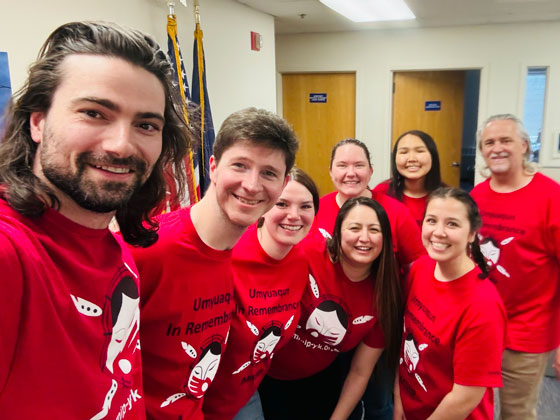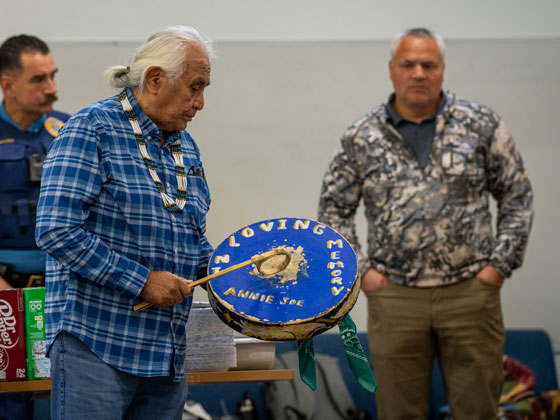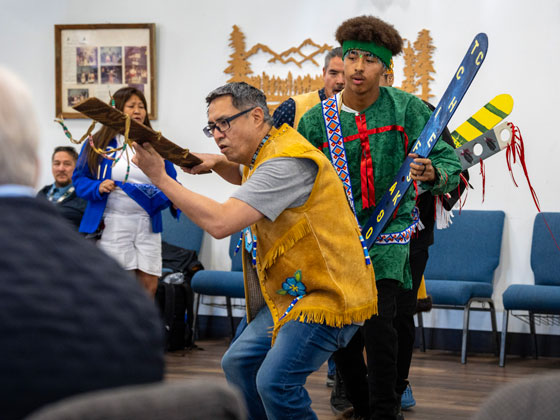
Anne Bruno, AAG
Criminal Division Tribal Liaison
907-269-5100
Anne.bruno@alaska.gov
Welcome to the Alaska Department of Law's Tribal Liaison webpage. Our goal is to enhance communication, collaboration, and coordination between the department and Alaska Native communities, tribes, and corporations. This includes issues where there may be disagreement and even litigation. In 2024, we established two Tribal Liaison positions specifically to strengthen these communication efforts. This webpage serves as a resource for information on our ongoing partnerships with Alaska tribes across various topics. We encourage you to visit regularly for updates and to reach out to us about upcoming collaboration opportunities.
“At the Alaska Department of Law, we are trying to improve communications and collaborations on all subjects, whether we’re on the same side of the issue or on opposing sides and just trying to understand one another better-- it’s all about communication. This webpage is one of our efforts to communicate, collaborate, and coordinate with Alaska Tribes.” Former Attorney General Treg Taylor

Anne Bruno, AAG
Criminal Division Tribal Liaison
907-269-5100
Anne.bruno@alaska.gov

Sharla Mylar, AAG
Civil Division Tribal Liaison
907-269-6612
sharla.mylar@alaska.gov
A Civil Diversion Agreement (CDA) is a voluntary agreement between the State and Tribal Government to create a path for Alaska Tribes to handle certain misdemeanors in tribal court as opposed to State criminal court.
Through these agreements, once an officer has established probable cause for arrest, the offender can agree to a civil diversion through the tribal court. Once an offender agrees to civil diversion, the case is referred by law enforcement to the local tribal court instead of effectuating an arrest and filing State criminal charges.
The tribal court then reviews the case and determines whether to accept the offender. If the tribal court accepts the case, they will follow their own process and procedures for determining what remedy is appropriate. Remedies can include fines, forfeiture of property, restitution, temporary deprivation of property, community work service, and more.
The tribal court does not hold a trial to determine guilt or innocence, rather the offender is accepting responsibility and agreeing to follow the remedy ordered by the tribal court. If either the tribal court does not accept the case or the offender fails to comply with tribal court, the case will be forwarded on to the district attorney’s office who will proceed with a State criminal case.
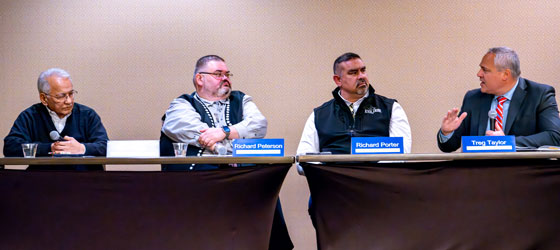
The following communities have signed CDAs:
Please contact the Criminal Division Tribal Liaison for more information on this program. For any questions on currently open cases, please contact the respective tribal court office or district attorney’s office.
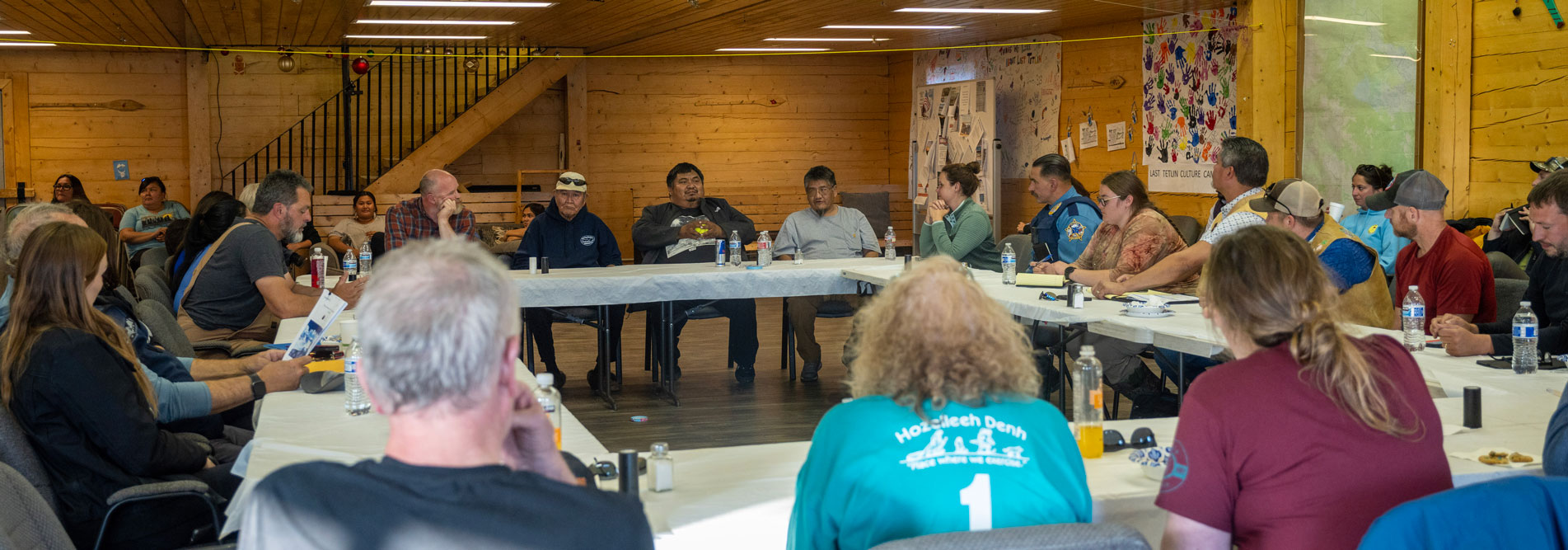
The Department of Law currently provides information sessions to tribal governments regarding the following topics:
The Department of Law can also provide information sessions on additional topics on request by tribal governments. Please contact the Civil Division Tribal Liaison or Criminal Division Tribal Liaison with your request.
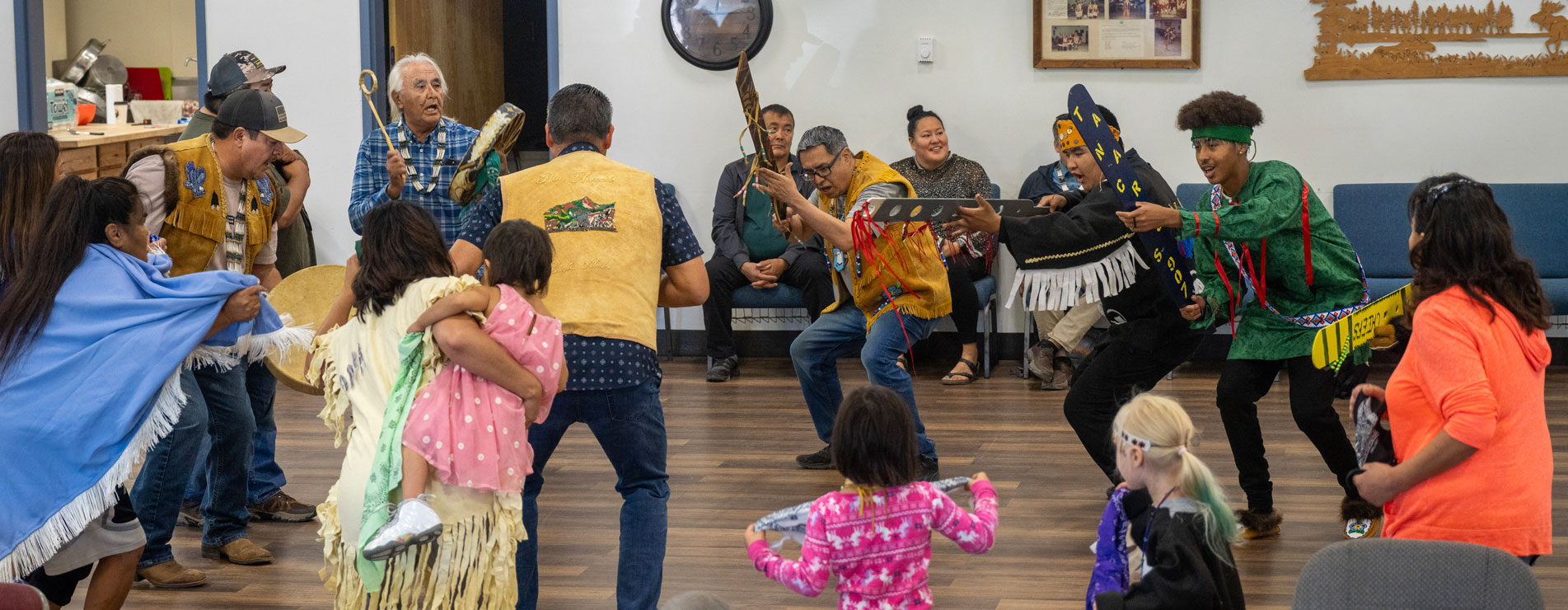
The following is a list of resources available to both individuals and tribal governments regarding Missing and Murdered Indigenous Peoples (MMIP). Any views expressed on external webpages are not the opinions or advice of the Department of Law nor does the Department of Law endorse any organization listed, nor does this represent a complete list of resources possibly available. To have your organization listed, please contact the Criminal Division Tribal Liaison.
Note: If this is an emergency or your loved one is missing, call 911. There is no required wait time to contact law enforcement. In Alaska where we have extreme climate and inclement weather, minutes can make the difference.
